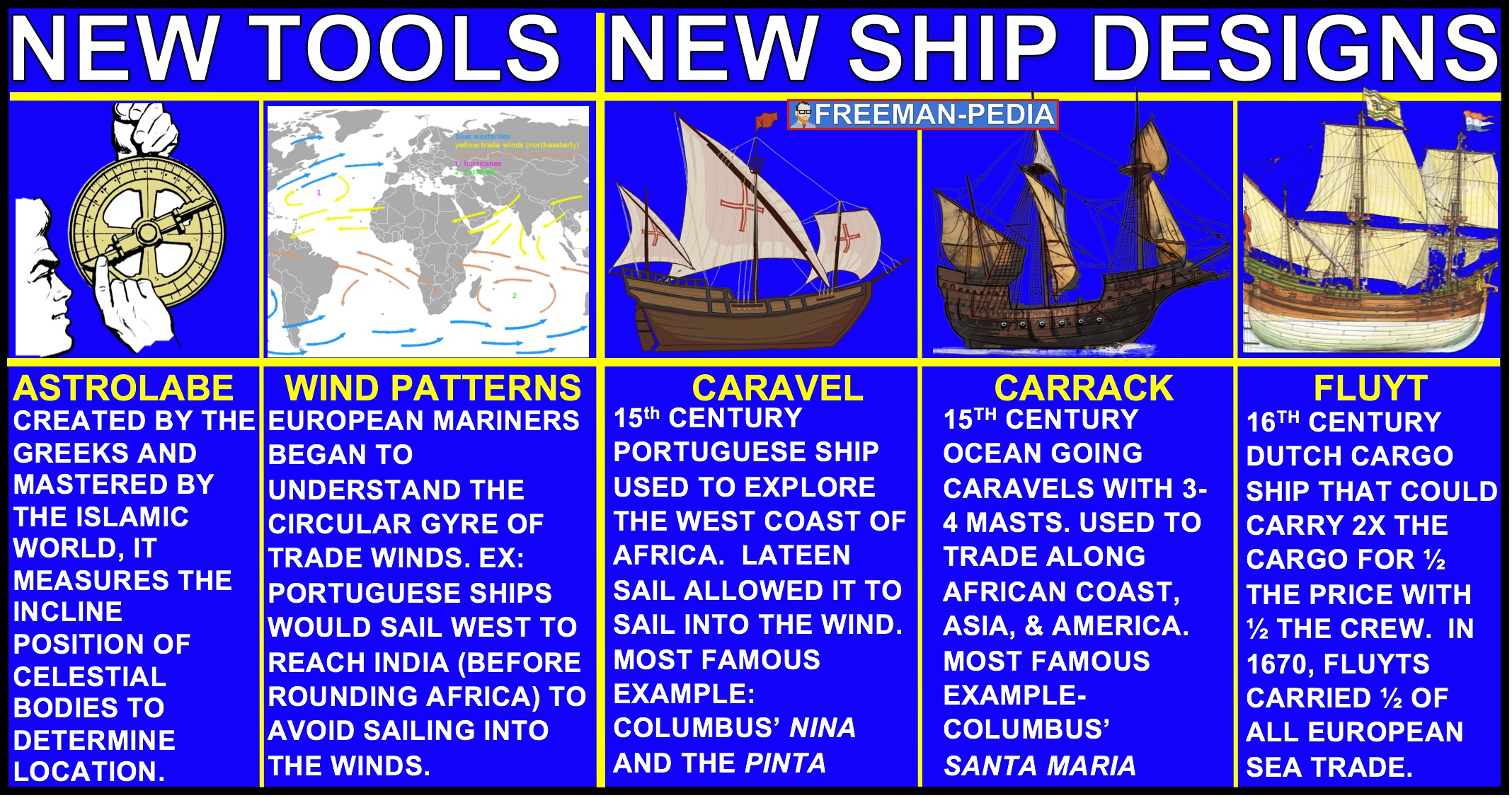Europe didn’t wake up one day and decide to go sailing. The technology and science behind the instruments/techniques used by the Europeans during the transoceanic maritime reconnaissance was the result of centuries of Greek, Arab, Persian, Indian and Chinese advances. This new amalgamation of innovation allowed the Europeans to leave their little continent and go global. The effects of these voyages will play out over the next few eras, but for now; these are the new technological innovations of the Early Modern Period…
1. ASTROLABE
2. CARAVEL
3. CARRACK
4. FLUYT
5. PREVAILING WINDS
6. Manila Galleons
7.
8.
9.
10.
DUTCH FLUYTS (from Me)
15TH CENTURY MARINERS from CRASH COURSE (ZHENGHE, COLUMBUS, AND DA GAMA
THE ASTROLABE
The PORTUGUESE CARAVEL
1. A Treatise on the Astrolabe, 1391, Geoffrey Chaucer (Earliest European description of an Astrolabe from the author of the Canterbury Tales)
2. Portuguese in West Africa, 1450s, Alvise da Cadamosto, Account on the advances of Prince Henry the Navigator along the West Coast of Africa (PORTUGUESE EMPIRE)
3. Letter from Christopher Columbus, 1492, Christopher Columbus (1st Letter from Columbus upon his return) (SPANISH EMPIRE)
4. An Historical Account of the Trade Winds, and Monsoons, Observable in the Seas between and near the Tropicks, with an Attempt to Assign the Phisical Cause of the Said Wind", 1686, Edmund Halley
1. FRA MAURO MAP, 1450, ITALY (The most accurate map in the world in 1450)
2. THE VIRGIN OF THE NAVIGATORS, 1535, SPAIN (Earliest known depiction of Christopher Columbus, he’s the balding dude on the left)
2. WORK IN THE TAQI AL DIN OBSERVATORY, 1577, ISTANBUL
3. Shipyards of the Dutch VOC in Amsterdam, 1726, Joseph Mulder
4. MONUMENT TO THE DISCOVERIES, 1958, LISBON, PORTUGAL (Monument to all of the Portuguese explorers
1. Before this period, a lot of the voyages the Europeans took would have been impossible.
2. Europeans built on the knowledge of the travelers from UNIT 2: NETWORKS of EXCHANGE.
3. The most important things they picked up on were Islamic Astrolabe and trade wind maps to know how/when to get from place to place.
4. Using these innovations, the Europeans will disrupt trade networks around the globe.
5. Brace yourself, Earth: the Europeans are coming.





















